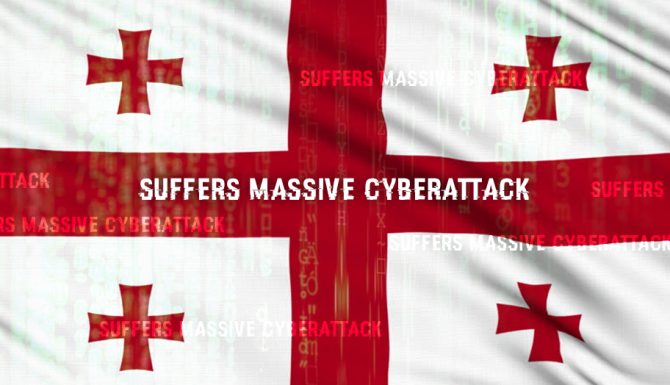Georgia suffered from a nationwide cyberattack last October 28, 2019. Following the attacks, thousands of websites and television channels became affected by the incident.
According to Forbes, the attacks launched in the country appeared to be random. Some of the affected parties include businesses, local newspaper websites, and other personal pages on the Internet. Government sites, including pages of the general jurisdiction courts, were also defaced by attackers.

In total, the number of websites vandalized by the assailants went beyond 15,000. Two television companies, Imedi TV and Maestro, have been disconnected as well.
In a Facebook post, news head at Imedi TIV Irakli Chikhladze remarked that the station had no signal. This resulted in a delay in the station’s broadcasting services. Meanwhile, Maestro’s computers reportedly suffered from damages, notes BBC.
While TV channel Pirveli suffered from the incident, it did not go offline, said ZD Net.
Although the cyber targeting seemed random, incumbent President Salome Zurabishvili received indirect threats from information found on the government website. Compromised pages featured the face of former President Mikheil Saakashvili together with the words, “I’ll be back,” reports Forbes.
Apart from these reported casualties from the incident, a German web hosting provider named Pro service also became compromised. The service provider immediately issued a statement on its page, saying the hacking incident affected around 15,000 users. Following this, the company attempted to secure its database, with 50% of pages already restored by 8 in the evening.
Speculations Behind the Event
The people of Georgia believe that the attacks were orchestrated by Russia. Considered as the largest cyberattack in the history of Georgia, the country believes Russian forces were behind this episode. Similar cyber-attacks on the Georgian nation allegedly bore similarities to the happenings waged in the 2008 Russo-Georgian War.
“With the scale and the nature of the targets, it’s difficult not to conclude this was a state-sponsored attack.” Professor Alan Woodward from Surrey University remarked this statement when asked about the reach and impact of the event. Woodward is a cybersecurity expert for the school.
ZD Net states some of the similarities include the use of BGP to intercept internet traffic. Defacement of websites and other government pages were also prevalent in the 2008 incident. The takeover of television stations, as well as radio broadcasting corporations, were also present in 2008.
Despite these allegations, the nation has yet to find evidence proving Russia’s involvement in the case. However, authorities and government officials have already launched an official investigation regarding the matter.
















